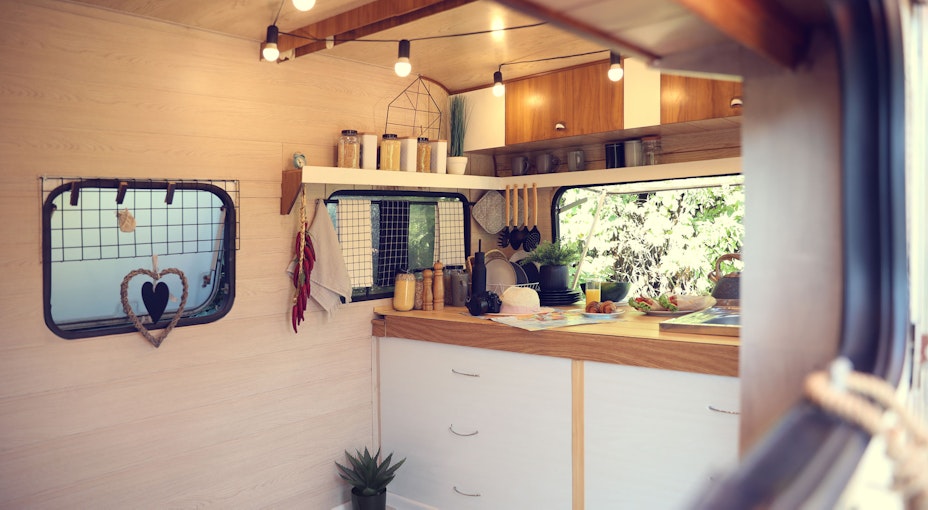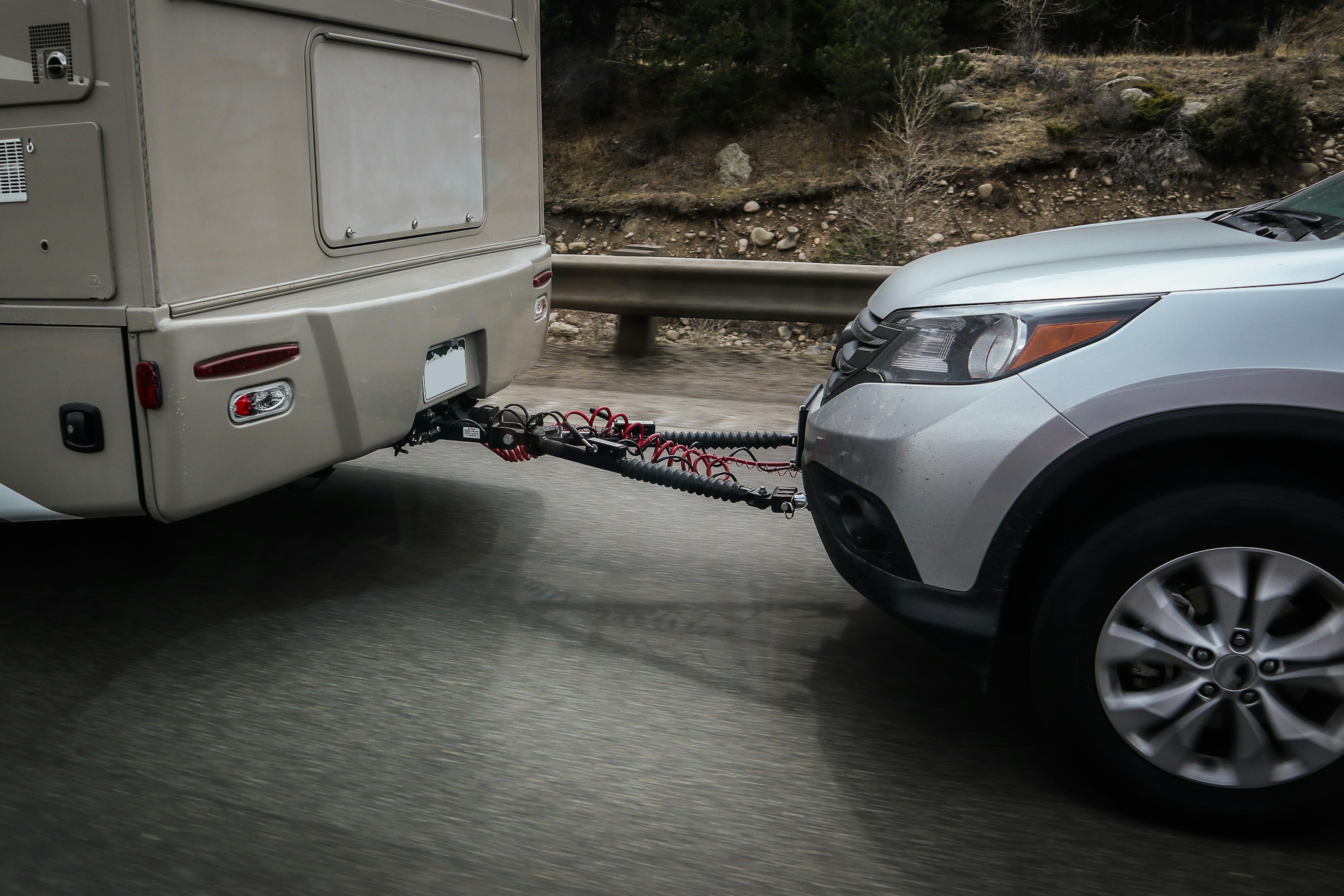Guide to motorhome and campervan habitation checks
By Alan Boswell Group

One joy of owning a motorhome is the ability to travel and stay in comfort without dealing with the hassle of camping or the expense of hotels. You can drive for miles through beautiful countryside, knowing you have everything you need for a comfortable stay at your destination.
Indeed, motorhomes have become increasingly popular since 2010. In that year, there were only 7,315 new motorhome registrations, which more than doubled to 15,342 in 2019. While new registrations temporarily dipped during the COVID-19 pandemic, pre-owned motorhome registrations spiked to a high of 67,351 during 2021.
While more and more people are discovering the pleasures of owning or renting out a motorhome or campervan, there are challenges to keeping vehicles in tip-top condition. In this article, we look at motorhome habitation checks, why they are important, and how you can make sure you have the insurance cover you need.
What is a habitation check for motorhomes?
A habitation check – or ‘hab check’ – is an inspection of the living area of your motorhome or campervan. It’s done to make sure your vehicle is safe to live in and spot any problems as soon as possible.
Is a habitation check the same as a service?
A habitation check is different to a service. While a habitation check focuses on your vehicle’s living area and functions, a service focuses on mechanical components such as the engine and suspension.
A habitation check is also different to an MOT. The latter is an annual inspection to certify that your vehicle is roadworthy. It is a legal requirement to have a yearly MOT if your motorhome or campervan is over three years old. The only exception is if your vehicle was first registered over 40 years ago and has not undergone any ‘substantial changes’ during the last 30 years. However, even if your motorhome falls within this historic (classic) vehicle exemption, it’s a good idea to get a regular service for peace of mind.
What does a habitation check involve?
A habitation check is a thorough inspection of the motorhome's living space. A trained technician will assess various elements such as gas and water systems, appliances, electrical systems, leisure batteries, fire extinguishers and blankets, boilers, ventilation, and general safety features. They’ll also check the vehicle’s bodywork is safe and verify that the living space, fittings, and furniture aren’t affected by damp or mould. The aim is to identify any issues or potential hazards.
Once the habitation check has been completed, you’ll get a report highlighting any issues that need to be rectified.
How often should a habitation check be completed?
Some people like to organise an annual inspection, while others get one every two years. If you hire out campervans and motorhomes, we recommend you get your vehicle checked every 12 months. It’s also a good idea to get safety critical systems like the gas and boiler inspected at least once a year.
Is a habitation check a legal requirement?
No. Unlike an MOT, a habitation check is not a legal requirement. However, you may find that your insurance company requires an annual check to maintain your cover. Even if it doesn’t, it’s wise to have a regular inspection. For example, if your gas systems hadn’t been checked recently, and you had a gas bottle explosion, your insurer may not settle your claim.
If you have a new vehicle and don’t want to invalidate your warranty, you may also have to arrange regular habitation checks.
How long does a habitation check last for?
A technician needs to inspect about 50 different things, so a thorough habitation check takes time. Expect it to last between three and four hours.
How much does a habitation check cost?
The cost of a habitation check varies, and the service you receive can also differ – not all technicians will do damp checks or service solar panels, for example. For this reason, it’s best to shop around. If you search online, you’ll be able to compare prices and service levels. That said, look to pay in the region of £200 to £250 for a thorough inspection.
How to book a motorhome habitation check
If you want to book a motorhome habitation check, search for local providers or ask fellow owners for their recommendations. Remember, some companies will expect you to take your vehicle to their service centre. Others will come to you, but they will need access to mains electricity and water if they do.
Benefits of a motorhome habitation check
There are many benefits to having a regular motorhome habitation check.
Safety assurance. Identifying and rectifying potential safety hazards ensures a secure living environment for you and your hirers.
Preventive maintenance. Addressing issues early can prevent more significant problems from developing, potentially saving you money on future repairs.
Extended lifespan. Regular maintenance contributes to the longevity of your motorhome, protecting your investment for years to come.
Peace of mind. Knowing that your living space is in optimal condition provides peace of mind for you and your hirers.
Valid warranty. If you have a new vehicle, an annual habitation check will ensure your warranty remains valid.
Satisfied customers. If you hire out motorhomes or campervans, a regular check will make your vehicles more attractive to potential customers and can help to make sure their experience is as pleasant as possible.
Insurance. A regular check can prove to your insurer that you’ve taken reasonable steps to make sure your motorhome is safe, which could be vital in the event of a claim.
What insurance do I need for a motorhome or campervan?
If you have your own vehicle, then you can opt for comprehensive motorhome insurance. If you hire out motorhomes or campervans, you should have self-drive hire insurance. Remember, if you lend or hire your motorhome to friends or family, you’ll need the correct cover. Our guide to renting out your campervan or motorhome can help you if you’re considering starting a self-drive hire business.
While habitation checks are not legally required, they are a wise investment in the safety and longevity of your motorhome. By understanding the process, costs, and benefits of these, you can make informed decisions to ensure your mobile home is ready for your next hire.
Whether you use your vehicle for personal enjoyment or rent it out, it's crucial to have suitable insurance that covers all potential scenarios.
Need help with your insurance?
Whether you need a quote, have a general enquiry, or want to talk it through over the phone, we're here to help.
SDH & motorhome insurance enquiry
Related guides and insights

Guide to motorhome and campervan maintenance
We’ve compiled the ultimate guide to help you maintain your campervan or motorhome from what to check before you buy one, to upkeep, pre-trip checks, and what to do when you arrive at your destination.

Guide to registering a converted campervan or motorhome
If you’ve converted a van into a camper, reclassifying it with the DVLA can lead to several benefits. We take a look at what some of those benefits are and what you need to do to reclassify your vehicle.

Guide to towing with your campervan or motorhome
Towing with your motorhome or campervan can give you more flexibility, so check out our top tips for how to make towing work best for you.

How to avoid underinsuring your motorhome or campervan
A shortage of new motorhomes and campervans means that many second-hand vehicles are rapidly increasing in value. While good news for self-drive hire vehicle owners, it does increase the risk of being underinsured.
